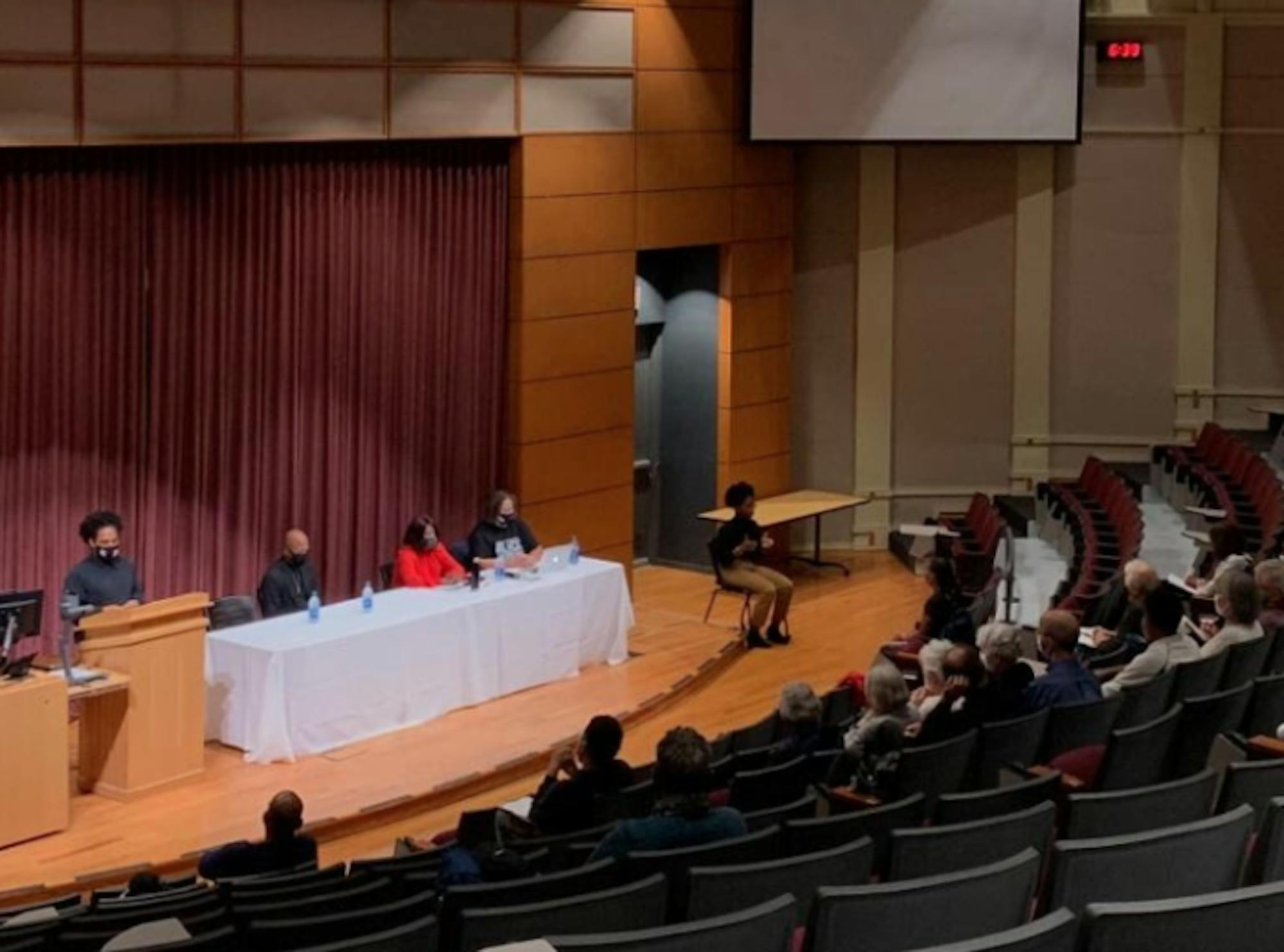The Notre Dame Initiative on Race and Resilience hosted a panel Wednesday in DeBartolo Hall on Black civil rights in South Bend, featuring some of South Bend’s prominent community leaders.
The panel, which intended to explore the immense social inequalities facing South Bend’s Black residents, included Trina Robinson, president of NAACP-South Bend; Regina Williams-Preston, president of Community Action for Education and former South Bend Common Council representative; Jorden Giger, co-founder of Black Lives Matter South Bend and Deacon Mel Tardy, deacon of St. Augustine Parish and an advising faculty at the University.
The panelists offered their experiences and recommendations toward a stronger future for civil rights within the local community. They called for action to combat systemic racism — a historical pattern of denying opportunity to fair education, health and housing opportunities in South Bend.
“He who wins the war gets to tell the story, so now we believe it all right. Here we are today seeing how that history gets uncovered,” Williams-Preston said.
For more than a century, Tardy explained, African Americans have been moving to the north with the intention of looking for jobs after the Great Migration. Tardy said African Americans now make up 27% of the South Bend population.
However, the promise of labor has quickly shifted to the lack of job opportunities for people of color.
“A lot of the families are having difficulty getting places to stay where there is some sort of consistency,” Tardy said.
As mentioned in the panel, South Bend’s eviction rate is three times the national average. Low wages, prejudiced state policies and lack of affordable housing are the three main explanations for the city’s drastic increase in evictions, Williams Preston explained — and many citizens being displaced are people of color.
In addition to the struggles people of color face in finding jobs, Robinson said the systematic racism that exists won’t let these communities break out of that endless loop of neglect.
Panelists then discussed the ongoing disparities in the racial education gap, agreeing that the first step in improving the system is acknowledging that there is an issue: Systematic racism leads to academic underperformance in children of color.
“There exists a systematic problem … Black children don’t have less capabilities; the system is against them,” Williams-Preston said.
Tardy emphasized the importance of educational resources and of having a strong focus on elementary schools where foundational skills are taught, such as reading and writing. He also stressed increasing accessibility of mental health resources.
Robinson spoke of the need for reliable institutions in the education system.
“We should hold corporations accountable for educating our children and for acknowledging the things that are not working,” Robinson said.
Black-owned businesses struggle to grow because of the lack of support from the local government, Williams-Preston said.
“It’s killing us,” she said.
Williams-Preston said young people of color, including students, entrepreneurs and members of the community, are leaving South Bend due to a lack of opportunity.
There is also space for improvement in the community of Notre Dame in eradicating “nepotism and favoritism,” Williams-Preston said. She argued that Notre Dame should support Black community efforts in “mining [their] gold” from the Westside Black communities in order to make them feel more connected.
Panelists also suggested efforts to improve cooperation between local businesses and Notre Dame, including direct funding from the University in supporting local small Black-owned businesses. Efforts such as these, Williams-Preston explained, would provide much-needed space for business growth, talent training and inclusion within the community.
“If we can do that, we won’t even be the first, but that’s the kind of thing Notre Dame needs to invest in ... committing to becoming a leader in this community by investing in cooperative businesses right here at home,” Williams-Preston said.
Editor's note: A previous version of this article misstated a fact by Williams-Preston on the lack of support from the local government for Black-owned businesses. The Observer regrets this error.













